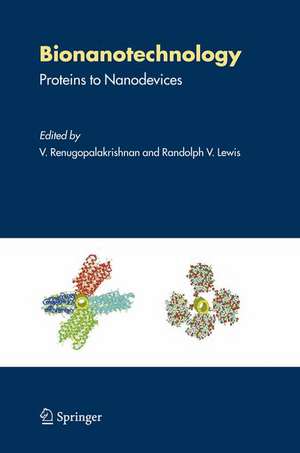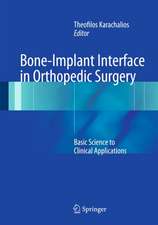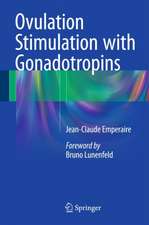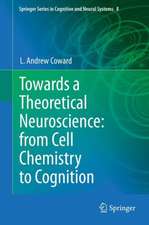Bionanotechnology: Proteins to Nanodevices
Editat de V. Renugopalakrishnan, Randy V. Lewisen Limba Engleză Hardback – 28 apr 2006
| Toate formatele și edițiile | Preț | Express |
|---|---|---|
| Paperback (1) | 1410.61 lei 6-8 săpt. | |
| SPRINGER NETHERLANDS – 19 oct 2010 | 1410.61 lei 6-8 săpt. | |
| Hardback (1) | 1417.54 lei 6-8 săpt. | |
| SPRINGER NETHERLANDS – 28 apr 2006 | 1417.54 lei 6-8 săpt. |
Preț: 1417.54 lei
Preț vechi: 1492.14 lei
-5% Nou
Puncte Express: 2126
Preț estimativ în valută:
271.28€ • 294.57$ • 227.87£
271.28€ • 294.57$ • 227.87£
Carte tipărită la comandă
Livrare economică 23 aprilie-07 mai
Preluare comenzi: 021 569.72.76
Specificații
ISBN-13: 9781402042195
ISBN-10: 1402042191
Pagini: 312
Ilustrații: XIV, 296 p.
Dimensiuni: 210 x 297 x 22 mm
Greutate: 0.61 kg
Ediția:2006
Editura: SPRINGER NETHERLANDS
Colecția Springer
Locul publicării:Dordrecht, Netherlands
ISBN-10: 1402042191
Pagini: 312
Ilustrații: XIV, 296 p.
Dimensiuni: 210 x 297 x 22 mm
Greutate: 0.61 kg
Ediția:2006
Editura: SPRINGER NETHERLANDS
Colecția Springer
Locul publicării:Dordrecht, Netherlands
Public țintă
ResearchCuprins
Design principles for self-assembling devices from macromolecules.- Metalloprotein-based electronic nanodevices.- Mechanical consequences of biomolecular gradients in byssal threads.- Bacteriorhodopsin-based 3D optical memory.- Spider silk production.- A projection display based on a bacteriorhodopsin thin film.- The role of collagen in energy storage and dissipation in extracellular matrix.- Enhancement of protein thermal stability: toward the design of robust proteins for bionanotechnological applications.- Deciphering engineering principles for the design of protein-based nanomachines.- Bioprocessing of silk proteins-controlling assembly.- Nanobiotechnology enables new opportunities in material sciences: bacteriorhodopsin as a first exampple.- Synthetic photorefractive and photochromic materials and their comparison with bacteriorhodopsin mutants for optical information processing.- Submonolayer measurements of adsorbed proteins in microfluidic channels.- Programs of the european commission on organic materials for the electronics industry.- Biodiversity: an archive of opportunity for nanodevices.
Recenzii
From the reviews:
"Bionanotechnology is a new and exciting field of study. … This … is a fine attempt to bring together some review articles on frontier areas of the subject, with particular reference to proteins as nanosystems. … The editors have assembled a panel of eminent scientists who have authored … the book. The reviews are well written and are readable. … this would be a useful source of information on selected areas of Bionanotechnology to the more serious learners of the subject. " (V.Lakshminarayanan, Journal of Ecobiology, Vol. 19 (1), 2006)
"Bionanotechnology is a new and exciting field of study. … This … is a fine attempt to bring together some review articles on frontier areas of the subject, with particular reference to proteins as nanosystems. … The editors have assembled a panel of eminent scientists who have authored … the book. The reviews are well written and are readable. … this would be a useful source of information on selected areas of Bionanotechnology to the more serious learners of the subject. " (V.Lakshminarayanan, Journal of Ecobiology, Vol. 19 (1), 2006)
Caracteristici
The first ever monograph on the theme protein to nanodevices Possibly the first ever monograph on bionanotechnology Field guide in the emerging area of bionanotechnology ontributions from leading scientists active in this field One of the early publications on design principles in bionanotechnolgy Integrates diverse concepts, perspectives and applications of biology inspired nanotechnology Describes how biology can be used to build nanodevices
















